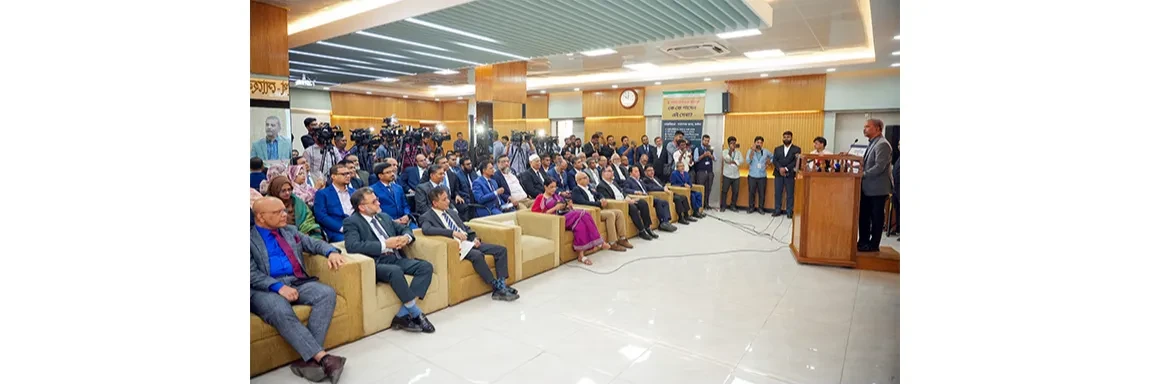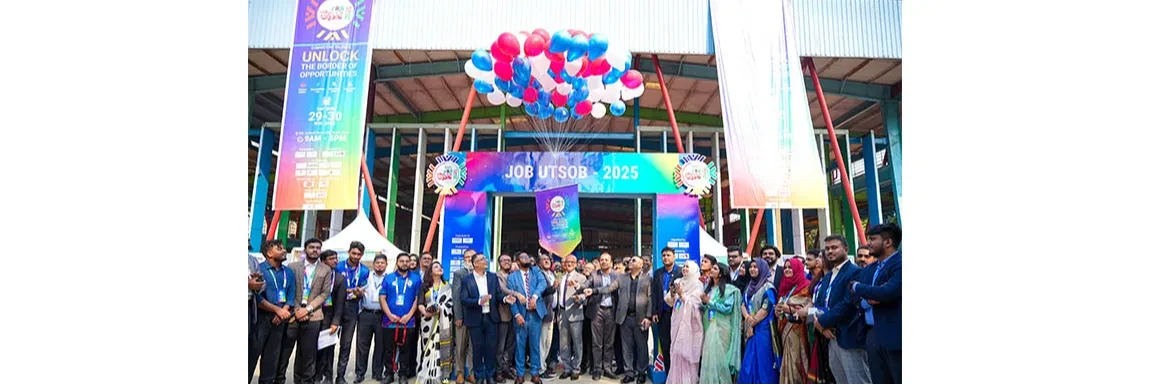Digital Transformation in Judicial System: Government & Daffodil Are Introducing the Court Automation Platform

Digital Transformation in Judicial System: Government & Daffodil Are Introducing the Court Automation Platform
Bangladesh is entering a new chapter in the digital transformation of its judicial system. The Government is officially inaugurating the country’s first e-Family Court operations today at the Jagannath–Sohel Memorial Auditorium of the Dhaka Metropolitan Sessions Judge Court building. As the principal technological collaborator, the Center for Software Development & Emerging Tech of the Department of Computer Science and Engineering (CSE), Daffodil International University (DIU), together with Daffodil Software Ltd. (DSL), is developing and delivering the nation’s first fully integrated Digital Court Management and Case Automation Solution.
The newly announced e-Family Court platform is live from 24 November 2025 at Dhaka Family Court–5 and will be live from 30 November 2025 at Chattogram Family Court–1. Through this platform, court users are getting access to online case filing, digital documentation, and on a limited scale online hearings. This system is creating a faster, cost-efficient and more citizen-friendly judicial service while reducing time, hassle and travel burdens for litigants.
Distinguished guests attending the inauguration are Prof. Dr. Asif Nazrul, Adviser, Ministry of Law, Justice and Parliamentary Affairs; Syeda Rizwana Hasan, Adviser, Ministry of Environment, Forest and Climate Change; Mr. Faez Ahmed Taiyyeb, Special Assistant to the Honorable Chief Adviser (ICT); Dr. Md. Sabur Khan, Founder and Chairman, Daffodil International University; Prof. Dr. M. R. Kabir, Vice Chancellor, Daffodil International University; Prof. Dr. Sheikh Rashed Haider Noori, Head, Department of CSE, Daffodil International University ; along with senior officials of DIU, CSE students, government representatives, and academicians.
Dr. Asif Nazrul stated, “We will set the foundation for the e-Judiciary and e-Registration projects. Through technology, lawyers will be able to provide enhanced services, and the reform process will continue.”
Syeda Rizwana Hasan, Adviser to the Ministry of Environment, Forest and Climate Change, praised the paperless system for its positive environmental impact.
Fayez Ahmed Tayyeb, Special Assistant to the Chief Adviser (ICT), noted that the initiative will significantly enhance the professional efficiency of lawyers.
DIU Founder and Chairman Dr. Md. Sabur Khan is acknowledging the initiative as a national model of innovation-driven public service, saying:“The commitment we are continuing to uphold using technology and innovation for national development is becoming evident once again. Universities must remain actively involved in solving real public service challenges. The e-Family Court and automation solution are proving how academic expertise and government priorities together are creating transformative, scalable and sustainable national impact.”
He further adds that the youth of Bangladesh especially university students are capable of solving many national problems through innovation, technology and social initiatives.
“If we can clean the Turag River, then we can guide Dhaka toward becoming a modern, smart and environmentally city like Hong Kong. With the right engagement, youth will remain at the center of transforming Dhaka into a well-planned, technology-enabled metropolitan model,” he says.
The advisors and speakers present at the event expressed deep appreciation and gratitude to Daffodil International University for its role as a key collaborator in this groundbreaking national digital transformation initiative.
Key Technological Features of the e-Family Court Platform
The new automation and e-Court system is offering the following advancements for litigants and lawyers:
· 24/7 Online Registration: Citizens are getting round-the-clock access to case registration and online scheduling.
· Judicial Services from Home: Case filing and fee payment are being completed online, reducing hassle, travel time and cost.
· Transparency & Reduced Corruption: Full digital operations are reducing intermediaries and minimizing corruption risks.
· Paperless Documentation: Eco-friendly digital records are replacing traditional paperwork.
· Legal Aid Integration: A streamlined digital mechanism is supporting faster family dispute resolution.
· Online Hearing Options: Limited online hearing facilities are introducing speed and flexibility in proceedings.
· Enhanced Lawyer Efficiency: Lawyers are gaining quick access to digital databases and real-time case tracking.
This advanced solution developed without any government funding is already being tested successfully by 250–300 officials from the Judiciary, Ministry of Law, and the Supreme Court.
This initiative is not only transforming the judicial ecosystem but is also strengthening the national digital governance framework. The collaborative model of Government–University–Tech Industry is creating a faster, transparent, paperless and citizen-centric service structure. In the future, it is ensuring quicker case disposal, easier information access, reduced administrative delays, and improved public service quality marking a significant milestone in realizing the vision of Digital Bangladesh.


